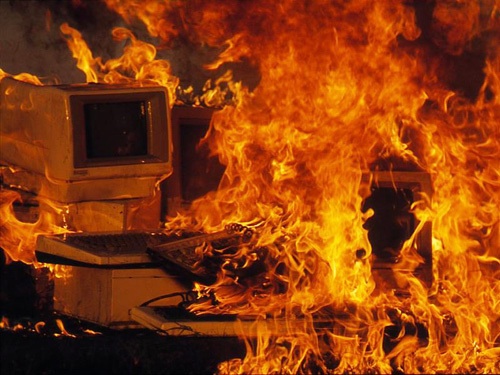If you have NOT already read either of these items you need to.
Right away.
We, as in all your brothers and sisters. We'll wait. Go ahead. Copy and paste into your browser.
Now, hopefully you have taken the time to become familiar with them. It leads into our next series of thoughts.
The 16 Life Safety Initiatives were developed in 2004 in Tampa FL at the Firefighter Safety Summit. They are a series of well thought out and well researched items.
They have been around since 2004. Did I mention they were written in 2004?
Its 2015. Maybe we didn't get them all right the first time. It was Florida. It was sunny. I hear they have beaches and such. Maybe the guys just didn't get them all on paper the way they intended. I doubt it. The list of folks involved seems pretty legit. They all play hard ball for the most part.
Okay, lets fast forward to April 2015. A group of like minded folks got together and had some ideas that they got down on paper. They gave a respectful nod to the folks that created the life safety initiative info. Then, they outlined one very special, one very crucial component.
Climate.
If you want to change the culture you first have to start with changing the climate. This likely is going to start small. It may even mean that you are going to have to make some internal changes in the organization, or maybe....eeek.....within yourself.
Its ok to change. Are you the same you as 15 years ago?
The career world is a much different place then when some of us began here. Its different for a multitude of reasons. Some good and some bad. Regardless it has changed and its time that we keep up with it. Are you being or doing?
I realize that we have taken kind of a long road to get to this. We have to start to evaluate on small scale approaches. A majority of the Unites States is served by smaller scale departments. Its time that we begin to evaluate and develop a course of action for these agencies. It can not always be a top down or training by radio transmission approach.
If we take a deeper look at climate change in an organization I think that we need to look at organization and sense community as it relates.
Four Factors that Contribute to a Sense of Community.
2) Influence
3) Integration and Fulfillment
4) Shared Connection
Membership is a starting point for so many lessons in organizational development. You have to have the commitment of the membership to move in any direction. Some will catapult ideas into the future and others will keep things on a low simmer and let something spoil. The bottom line with this is that you have to maintain momentum and you have to allow the members to move the project along. Provide parameters and allow for movement to occur. Failures will happen and people will leave the momentum at times but you must be able to keep progressing in a forward direction. Engage the people that are motivating factors within the group. Remember, motivation can be positive and negative.
Influence is something that can be a little more difficult to manage. Some people have lots of influence and its all in the wrong direction or with the wrong motivating factors. When you are in a position of influence you do not necessarily have to be in a position of leadership or authority. Identify your sources of influence and bring them into the project.
Integration and fulfillment applies directly to whatever your project may be. If you are working on increasing participation in a volunteer or combination department you are aware of the daily struggle to maintain participation levels. Its a ripple effect problem. Some departments in the nation are having great success with integrating per-diem or paid staffing times. This does come with a new host of combined problems but with the right levels of direction and organizational guidance they are great solutions.
Develop shared connections within your cadre. Its highly likely that you have folks that have unexplored connections within their lives. Some of them may be able to work collaboratively to put solutions on the table.
Develop a mindset that you are going to approach problems in a team like atmosphere. The team may consist of different shifts or crews or it may be from a management or officer team.
Engage your folks in an internal mentoring program. Develop connections within the department that will help to promote through the ranks but will also help to develop follow through as transitions in and out of roles occurs.
In closing its not easy to commit to an organization that does not share a common thread. Making the people and the mission of the organization the common thread is bound to improve the outcome.
Look our and network with other agencies. In this day and age their is no acceptable answer to not be able to connect with someone. If you need a resource or need some guidance let us know and we will be happy to help connect you with someone!
Best wishes for you and your organization in 2016!
















